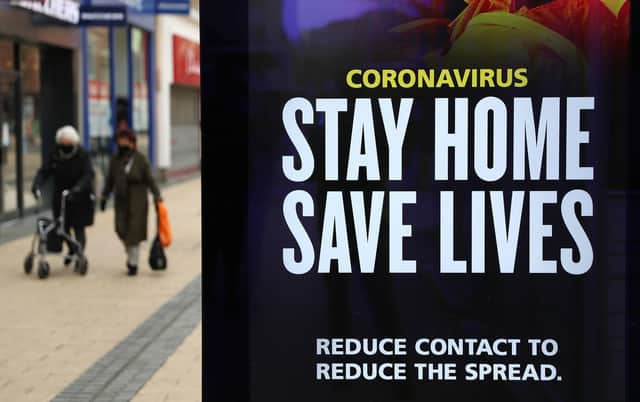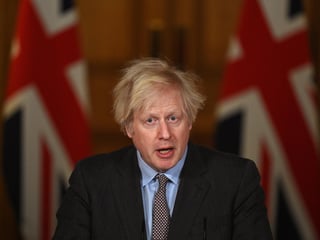Ministers warned to ease lockdown 'slowly' after scientists warn of spike in deaths


Scientists conducting preliminary research to advise the Government have suggested a “huge surge in deaths” will only be avoided as restrictions are relaxed if vaccines have a high uptake and are highly effective at blocking infection – and in turn blocking transmission.
Public Health England’s coronavirus strategy chief Dr Susan Hopkins said that measures must be eased slowly so “we can clamp down quite fast” if covid-19 cases begin to increase.
Advertisement
Hide AdAdvertisement
Hide AdAcademics on the Scientific Pandemic Influenza Group on Modelling (Spi-M) said deaths will only be “substantially reduced” under an easing of restrictions if vaccines are able to prevent 85 per cent of infections in those who have received the vaccination, rather than just reduce the severity of disease.
Dr Hopkins said: “We have learnt, as we did on the first occasion, we have to relax things really quite slowly, so that if cases start to increase we can clamp down quite fast.
“Any releases that we have will have to happen very slowly, very cautiously, watching and waiting as we go, with a two-week period to watch and see the impact of that relaxation because it takes that to see what’s happening in the population.”
The group, from the Warwick University, modelled various relaxation scenarios, known as non-pharmaceutical interventions, or NPIs, alongside how effective existing vaccines prove to be.
Advertisement
Hide AdAdvertisement
Hide AdWhile the group accept it’s a pessimistic view, as behaviour and Government policy would be likely to change if relaxations caused the number of hospital admissions to rise again, their model suggested a gradual relaxation of restrictions beginning in April and ending in the winter only prevents a severe peak if vaccines have 85 per cent infection efficacy.
England’s deputy chief medical officer Jonathan Van-Tam said vaccines’ impact on transmission is not yet understood, arguing the jabs with high levels of effectiveness in trials “really couldn’t fail to have some effect on transmission”, but questioned ‘to what extent.’
The Government will publish its plan for easing England’s third national next month – with March 8 earmarked for the first relaxation.
